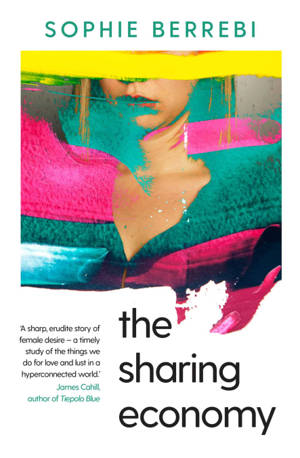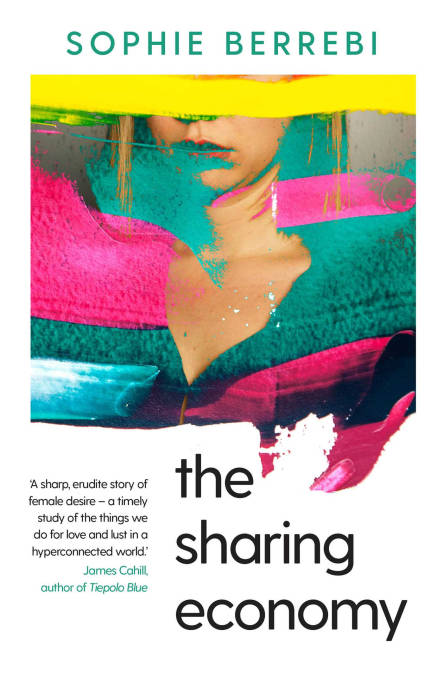
- Retrait gratuit dans votre magasin Club
- 7.000.000 titres dans notre catalogue
- Payer en toute sécurité
- Toujours un magasin près de chez vous
- Retrait gratuit dans votre magasin Club
- 7.000.000 titres dans notre catalogue
- Payer en toute sécurité
- Toujours un magasin près de chez vous
Description
Three Women meets Crudo: a frank and fresh literary debut about the dawn of dating apps in Amsterdam.
‘Sexual infidelity is unavoidable, for whatever reasons, in long monogamous relationships, so why not give the other sexual freedom, as a gesture of love, of communication maybe?’
Amsterdam in 2014 is an historic city situated at the heart of the future. One of the biggest hubs for internet traffic in the world, it has become a favourite testing-ground for the new internet platforms that form the vanguard of what has been coined ‘the sharing economy’.
Gabrielle Bloom is a woman in her mid-40s, working as an exhibition curator. She is happily married to Anton and loves her son Victor. They have a circle of sophisticated friends and enjoy the life of two successful and respectable professionals living in one of the world’s most beautiful and culturally rich cities.
There is, though, one crucial difference between their relationship and those of their friends. Gabrielle and Anton enjoy an open marriage.
When Gabrielle is introduced, during a visit to a feminist art collective, to a new dating app that has recently launched in the city, fresh horizons open up. With an almost unlimited number of potential partners suddenly available to her, she quickly develops a taste for the thrill of a brief sexual encounter. Moving from one assignation to the next, things at first seem exhilarating and uncomplicated. But the human heart has not evolved at the same rate as the silicon chip and when attachments start to form things rapidly become less simple.
Set during one intense and transformative year, and suffused with art, sex and philosophy, The Sharing Economy is at once a uniquely radical reappraisal of the way we view relationships and a tender and moving depiction of the many ways in which the human heart is capable of love.
‘Sexual infidelity is unavoidable, for whatever reasons, in long monogamous relationships, so why not give the other sexual freedom, as a gesture of love, of communication maybe?’
Amsterdam in 2014 is an historic city situated at the heart of the future. One of the biggest hubs for internet traffic in the world, it has become a favourite testing-ground for the new internet platforms that form the vanguard of what has been coined ‘the sharing economy’.
Gabrielle Bloom is a woman in her mid-40s, working as an exhibition curator. She is happily married to Anton and loves her son Victor. They have a circle of sophisticated friends and enjoy the life of two successful and respectable professionals living in one of the world’s most beautiful and culturally rich cities.
There is, though, one crucial difference between their relationship and those of their friends. Gabrielle and Anton enjoy an open marriage.
When Gabrielle is introduced, during a visit to a feminist art collective, to a new dating app that has recently launched in the city, fresh horizons open up. With an almost unlimited number of potential partners suddenly available to her, she quickly develops a taste for the thrill of a brief sexual encounter. Moving from one assignation to the next, things at first seem exhilarating and uncomplicated. But the human heart has not evolved at the same rate as the silicon chip and when attachments start to form things rapidly become less simple.
Set during one intense and transformative year, and suffused with art, sex and philosophy, The Sharing Economy is at once a uniquely radical reappraisal of the way we view relationships and a tender and moving depiction of the many ways in which the human heart is capable of love.
Spécifications
Parties prenantes
- Auteur(s) :
- Editeur:
Contenu
- Nombre de pages :
- 320
- Langue:
- Anglais
Caractéristiques
- EAN:
- 9781398515574
- Date de parution :
- 01-03-23
- Format:
- Ebook
- Protection digitale:
- Adobe DRM
- Format numérique:
- ePub







